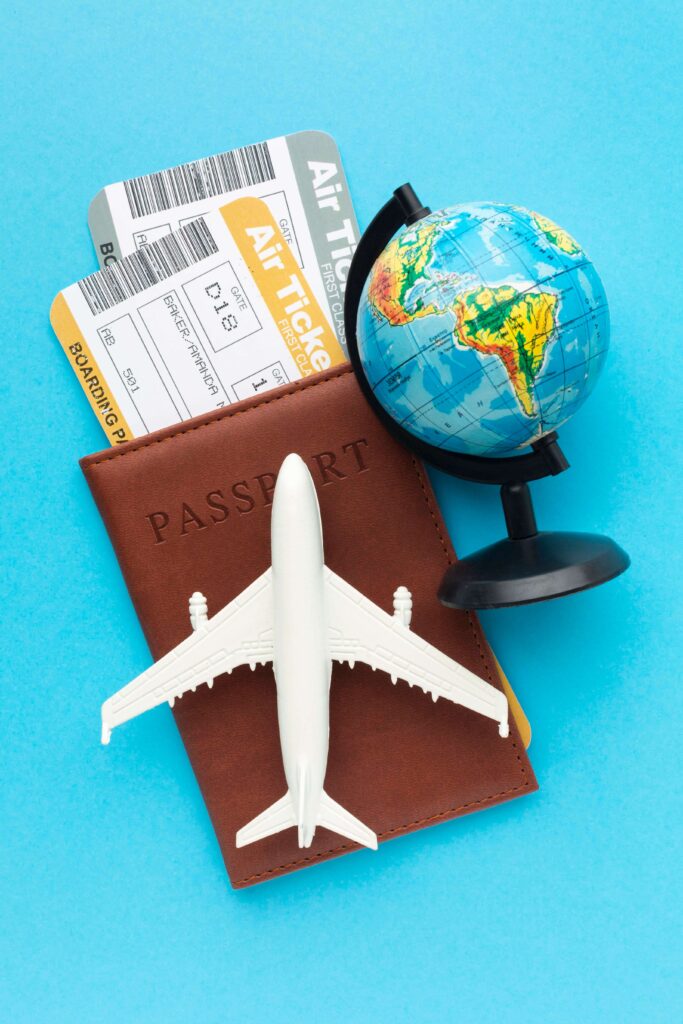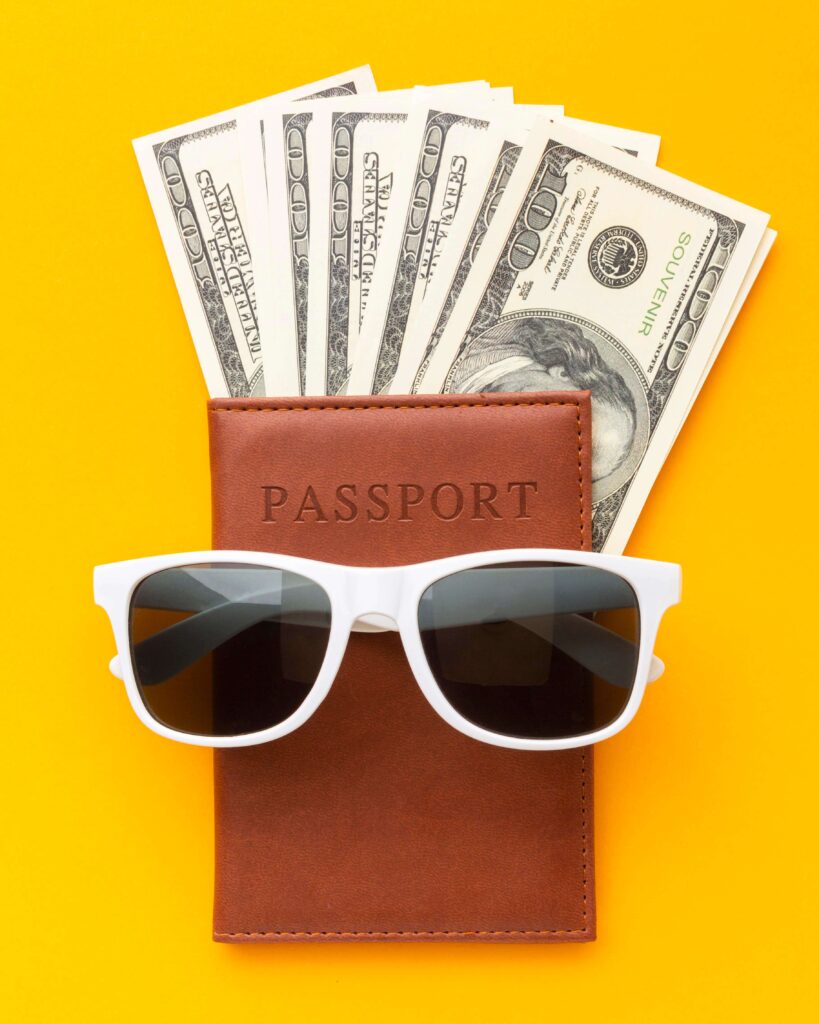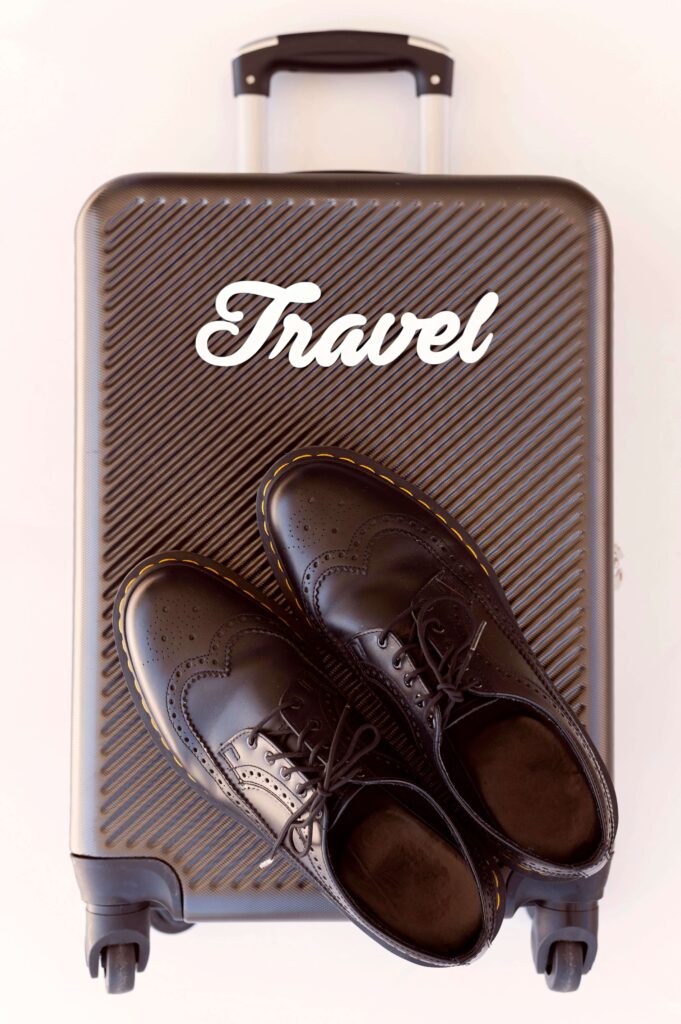
How to Become a Business Travel Consultant in 2025
Do Business Consultants Travel a Lot? Do Travel Consultants Make a Lot of Money? A Guide to Becoming a Travel Consultant From Home.
Are you wondering whether business consultants travel frequently or if travel consultants can earn a lucrative income? Whether you’re exploring a new career path or considering becoming a home-based travel agent, this guide answers key questions while also showing you how to launch your travel consultant career from home.
- Key Takeaways
- 1. What Does a Business Travel Consultant Actually Do?
- 2. Do Business Consultants Travel a Lot?
- 3. Do Travel Consultants Make a Lot of Money?
- 4. How Business Travel Consultants Save Time and Money
- 5. Business Travel Consultant vs. Travel Agency: What’s the Difference?
- 6. Tools Consultants Use to Get the Job Done (and Look Good Doing It)
- 7. What Kinds of Businesses Actually Benefit From Travel Consultants?
- 8. Consultant Background: What Kind of People Get Into This?
- 9. Should You Hire One or Start Your Own Travel Consultant Business?
- 10. How to Become a Travel Consultant from Home
- 💬FAQs About Business Travel Consultants
- Final Thoughts
Key Takeaways
- A business travel consultant helps companies manage flights, hotels, travel policies, and expenses — all while saving time and money.
- Whether you work in-house, freelance, or run a home based travel agent business, consultants need solid tools, fast problem-solving skills, and policy knowledge.
- You can become a travel agent online or start a travel agent business from home with little to no upfront cost.
- Travel consultants can earn well, especially when managing accounts for midsize or large firms.
- Freelancers, remote workers, and even stay-at-home parents are now working as independent travel agents from home — and thriving.
1. What Does a Business Travel Consultant Actually Do?

Image by Freepik
Forget the image of someone just booking flights all day. A business travel consultant’s more like a trip manager—they handle the whole thing. They make sure every work trip runs smoothly and stress-free.
They handle:
- Flight and hotel bookings
- Visa and passport coordination
- Travel policy enforcement
- 24/7 support when things go wrong (which they always do)
- Expense tracking and reporting
A good consultant makes sure the company doesn’t overspend and the employee doesn’t lose their mind mid-layover.
Many businesses now use agencies like Amex GBT because they want the full package — support, data, and someone to call when flights get canceled at 3am.
2. Do Business Consultants Travel a Lot?

Not usually. While the title might suggest otherwise, most business travel consultants don’t travel much themselves. Instead, they plan and manage travel for others—like corporate clients, executives, or teams.
They typically research destinations, create itineraries, and handle all travel logistics from start to finish instead of traveling.
Most of the job is done remotely or from home, often using online booking tools and communication apps. So if you’re looking for a travel-related career that doesn’t require you to constantly be on the move, this could be a great fit.
3. Do Travel Consultants Make a Lot of Money?

Travel consultants can earn a solid income, especially with experience or specialization. In the United States, the average hourly wage for a travel consultant is around $25.28. In high-cost-of-living areas like Washington, D.C., that rate rises to $35 per hour. Remote travel consultants also earn well, averaging $23.52 per hour. On top of that, many travel consultants earn commissions from bookings—flights, hotels, cruises, tours—so the more you book, the more you can make.
Salaries can increase depending on your clientele, niche expertise (e.g., luxury, corporate, or adventure travel), and whether you’re working independently or for a company. Some experienced consultants earn upwards of $77,000 per year, especially those who operate their own home-based travel agent business or partner with established host agencies.
If you’re looking for a flexible job with the potential for growth, becoming a travel consultant from home is a viable and rewarding option.
4. How Business Travel Consultants Save Time and Money

Travel mistakes can get expensive—missing a refund deadline or rebooking a last-minute flight could cost hundreds. That’s where a business travel consultant comes in. They help companies and busy professionals avoid costly errors and save money on every trip.
Here’s how a travel consultant adds value:
- Negotiates corporate travel rates, even for small businesses
- Tracks travel spending to spot waste and cut unnecessary costs
- Reduces last-minute booking issues by planning ahead
- Keeps travelers compliant with company travel policies (avoiding upgrade abuse, missed reimbursements, or fines)
Many consultants also use tools like SAP Concur to manage bookings and monitor travel expenses efficiently.
Looking to become a home-based travel agent or offer business travel support? These skills are in demand—and they help clients save big
📝 Tip: If you want to break into this field, you can actually become a home based travel agent for free by training on platforms like Concur or TravelPerk. Many offer trial versions or low-cost certifications.
5. Business Travel Consultant vs. Travel Agency: What’s the Difference?

Here’s a quick breakdown:
| Role | Focus | Support | Who Needs It |
|---|---|---|---|
| Travel Agent | Booking trips | Basic support | Vacationers, solo travelers |
| Business Travel Consultant | Managing business travel | Full-service, ongoing help | Companies, remote teams, frequent flyers |
Consultants don’t just book. They think about policy, budgets, and employee safety. Big brands like BCD Travel offer hybrid models where they pair human experts with booking software, so the system runs smoother with fewer screw-ups.
6. Tools Consultants Use to Get the Job Done (and Look Good Doing It)

If you wanna do this job well — or start your own travel agent business from home — you’ll need the right stack. These tools aren’t optional.
- Concur – Used by most corporate travel teams
- Egencia – Easy interface, popular with smaller firms
- TravelPerk – Built for startups and remote teams
- Zoom/Slack/Email – You’ll still need fast replies for panicked clients
| Tool | Best For | Price |
|---|---|---|
| SAP Concur | Big companies | $$$ |
| TravelPerk | Startups, freelancers | $ |
| Egencia | Mid-sized teams | $$ |
Don’t worry — many of these tools let you explore for free. Perfect if you’re becoming a travel agent from home and testing the waters before diving in.
7. What Kinds of Businesses Actually Benefit From Travel Consultants?

Here’s where it gets real. Not every business hires a travel consultant—but many don’t realize they need one until it’s too late. Missed flights, booking chaos, and unpaid invoices quickly add up.
Use this quick guide:
- Solo founders – Usually okay with DIY booking tools
- Teams of 10–50 – Starting to need help, ideal for a home working travel consultant
- Companies with international clients – 100% need a dedicated consultant
- Sales and tech teams flying often – Yes, absolutely
📌 Even if you’re running your own independent travel agent from home, you can pitch your services to small businesses struggling with logistics.
8. Consultant Background: What Kind of People Get Into This?

Short answer: people who are organized and calm under pressure.
Longer answer? Many consultants used to work in:
- Hospitality or Customer Service
- Admin or HR (especially global mobility)
- Finance (to understand cost reporting)
No, you don’t need a travel degree. You can become a travel agent online, take a few targeted courses, and get certified.
Useful certs:
- GBTA Business Travel Fundamentals
- ACTE’s Advanced Travel Manager course
- Vendor-specific tools like SAP Concur and Amex GBT
And yes — you can start learning all this from home.
9. Should You Hire One or Start Your Own Travel Consultant Business?

It depends. Are you a business looking for help — or someone looking to start a home based travel agent business?
If you’re a company:
- Hire an agency like BCD Travel or CTM if your team flies often
- Hire freelance consultants for short-term help or one region
If you’re an individual:
- Start as a freelancer if you want low startup costs
- Work with a host agency if you want tools + leads
- Go solo once you’re confident with pricing and policy setup
Starting a travel agent business from home is doable. You’ll need basic training, time to learn tools, and a few early clients to build trust.
10. How to Become a Travel Consultant from Home

Today, more people are seeking ways to become a travel agent online and launch their own home-based businesses. The rise of digital tools, social media, and remote work opportunities has made this path more accessible than ever. Here’s how to get started:
1. Become a Travel Agent Online
You don’t need a traditional office or a degree in tourism to get started. Many people become a travel agent online by completing certification programs or joining host agencies that provide training. Look for credible platforms that emphasize customer service, destination knowledge, and booking systems like Sabre or Amadeus.
2. Start a Home-Based Travel Agent Business
Once trained, you can launch your travel agent business from home. This involves:
- Setting up a business entity (LLC or sole proprietorship)
- Creating a dedicated workspace
- Building a website and social media presence
- Choosing your travel niche (e.g., cruises, family travel, honeymoons)
This flexibility allows you to work when and where you want—ideal for parents, digital nomads, or those seeking a career shift.
3. Partner with a Host Agency
Many independent travel agents working from home partner with host agencies. These agencies give you access to booking tools, commissions, and marketing help. Some even let you start for free—but once you begin booking, you’ll usually pay a small monthly fee.
American Express, for example, has a work-from-home travel consultant program that blends remote work with the reputation of a global brand. These roles come with benefits, training, and strong support—plus the freedom to work from home.
4. Market Yourself Effectively
To grow your home-based travel consultant business, focus on building strong relationships, offering extra services, and staying up-to-date on travel trends. Use platforms like Instagram, Pinterest, and blogs to connect with your audience.
💬FAQs About Business Travel Consultants
- Do business consultants travel a lot?
- Do travel consultants make a lot of money?
- How much can you make as a travel consultant?
- What qualifications are needed to become a travel consultant?
- Can I start a travel consultant business from home?
- Are there opportunities for remote work as a travel consultant?
- How do travel consultants earn their income?
- Is prior experience in the travel industry necessary to become a travel consultant?
Final Thoughts
Becoming a travel consultant from home offers a flexible and rewarding path for those passionate about travel, organization, and customer service. Whether you choose to join a host agency, apply to programs like the American Express WFH travel consultant role, or build your own brand, the options are vast.
With a low barrier to entry, the chance to work remotely, and the ability to specialize in your favorite type of travel, starting a travel agent business from home has never been more accessible. If you’re looking to become a travel agent online or are exploring how to become a home-based travel agent for free, now is a great time to start.


